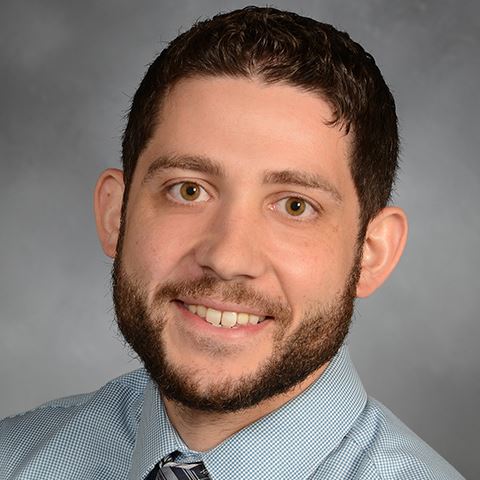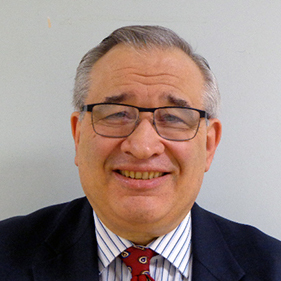| Thursday, May 11, 2023: Morning Sessions |
| 7:00 - 8:00 a.m. |
Registration & Breakfast |
| 8:00 - 9:00 a.m. |
Keynote Address: The Effect of Blood Donor Iron Deficiency on Red Blood Cell Quality and Donor Cognition and Wellbeing

Eldad Hod, MD
Vice Chair of Laboratory Medicine
Columbia University Irving Medical Center
Speaker Bio: Dr. Hod is Associate Professor with Tenure and Vice Chair for Laboratory Medicine in the Department of Pathology and Cell Biology of Columbia University Irving Medical Center in New York. Dr. Hod’s translational research interests focus on red blood cell and iron biology. He is the New York Hub Principal Investigator for the Recipient Epidemiology and Donor Evaluation Study IV-Pediatric (REDS-IV-P) NIH program, recipient of several research grants from the NIH, and has authored more than 100 peer-reviewed articles on red blood cell biology, transfusion medicine, clinical pathology, and hematology.
Abstract: In this presentation, Dr. Hod will review the epidemiology of blood donor iron deficiency, explain the differences between the different laboratory measures of iron status, and will share insights from a randomized controlled trial examining whether blood donor iron deficiency and iron repletion affects red blood cell quality for transfusion and blood donor cognitive performance and wellbeing.
Objectives:
By the end of this presentation, the learner will be able to:
- Understand the use of different laboratory measures of iron status (e.g., ferritin, zinc protoporphyrin, soluble transferrin receptor, hemoglobin).
- Explain the effect of blood donor iron deficiency and iron repletion on red blood cell quality for transfusion.
- Review the literature regarding the effect of blood donor iron deficiency on cognitive performance and wellbeing.
|
| 9:00 - 9:45 a.m. |
Patient Blood Management: Methods to Improve Quality and Value

Margit Kaufman, MD, FASA
Medical Director, Institute for Patient Blood Management and Bloodless Medicine & Surgery
Englewood Health
Abstract: This session will discuss the growing need and importance for Blood Bank professionals and clinicians to incorporate the practice of Patient Blood Management (PBM). In a continually growing source of research and publications, PBM has been shown to improve patient outcomes AND add value to the care of the patient.
Objectives:
By the end of this presentation, the learner will be able to:
- Describe a set of evidence-based practices that optimize medical and surgical care of a patient by managing and preserving patient’s own blood.
- Appraise evidence for benefits and harms of blood transfusions.
- Evaluate strategies to optimize the practice of Patient Blood Management.
|
| 9:45 - 10:00 a.m. |
Break |
| 10:00 - 10:45 a.m. |
Transfusion Approaches in Intracerebral Hemorrhage: Perspectives from Transfusion Medicine

David Roh, MD
Assistant Professor of Neurology; Division of Critical Care & Hospitalist Neurology
Columbia University

Elizabeth Stone, MD, PhD
Assistant Professor, Department of Pathology & Cell Biology
Columbia University Irving Medical Center
Assistant Attending, Transfusion Medicine and Cellular Therapy
NewYork-Presbyterian Columbia
Medical Director of Clinical Pathology and Laboratory Medicine
NewYork-Presbyterian Westchester Hospital
Speaker Bios: Dr. Roh is an Assistant Professor of Neurology at Columbia University. He is an Attending Neurointensivist Physician at Columbia University Irving Medical Center. Dr. Roh is board-certified in Neurology and Neurocritical Care, and he specializes in the treatment of neurological emergencies and critical illness in the Neurosciences Intensive Care Unit. He is a clinical investigator whose research characterizes coagulopathy in critically ill patients, specifically in those who encounter brain bleeding. Dr. Roh leads a translational research team whose focus is to develop novel laboratory diagnostic strategies and hemorrhage control therapy approaches to improve clinical outcomes in patients who encounter life threatening bleeding, and specifically intracerebral hemorrhage. His work is currently supported by the NIH (NINDS, NHLBI), the Department of Defense, and the National Blood Foundation. He currently serves as a senior advisory board member of the American Heart Association Hemorrhagic Stroke Science Committee.
Dr. Elizabeth Stone is an Assistant Professor of Pathology & Cell Biology at Columbia University, where she practices Transfusion Medicine at Columbia University Irving Medical Center as an Assistant Attending and is the Medical Director of Clinical Pathology at NewYork-Presbyterian Westchester. As a Principal Investigator in the Laboratory of Transfusion Biology, Dr. Stone has pioneered a mouse model for platelet transfusion with interest in optimizing platelet transfusion storage and outcomes. Dr. Stone is also an active clinical educator across Divisions and Departments at Columbia University to promote best transfusion practices across the NewYork-Presbyterian enterprise, and she was awarded the Joseph Fink Teaching Award for her resident teaching. She currently serves as a Board Member for BBANYS, is the co-chair of the BBANYS Education Committee, and serves on the BBANYS Membership Committee.
Abstract: Intracerebral hemorrhage (ICH) patients appear to be particularly vulnerable to impacts of transfusion medicine practices, specifically in regard to hemorrhage control efforts and cerebral oxygen optimization. In these two talks, we will introduce the topic of ICH, discuss contemporary diagnostic platforms for coagulopathy potentially implementable in ICH, including viscoelastic testing/ROTEM and platelet function assays, present the history of transfusion in ICH, discuss evidence-based guidelines for transfusion in ICH with particular emphasis on red cell and platelet transfusions, and highlight alternative transfusion strategies and transfusion-sparing pharmacotherapies to consider for ICH.
Objectives:
By the end of this presentation, the learner will be able to:
- Understand the rationale for transfusion of patients with intracerebral hemorrhage.
- Describe and apply up-to-date, evidence-based red blood cell and platelet transfusion practices when treating patients with intracerebral hemorrhage.
- Summarize the novel diagnostic approaches to guide transfusion strategies as well as the new transfusion-based and transfusion-sparing therapies that are on the horizon for treating intracerebral hemorrhage.
|
| 10:45 - 11:30 a.m. |
Debate of Viscoelastic Testing Versus Standard Coagulation Testing for Managing Patients with Trauma-induced Coagulopathy
Viscoelastic Testing is Superior to Lab-based Coagulation Testing for Hemorrhage Monitoring

Melissa Cushing, MD
Executive Vice Chair for Clinical Affairs, Professor of Pathology and Laboratory Medicine
Weill Cornell Medicine & NewYork-Presbyterian Hospital
Speaker Bio: Melissa Cushing is Professor of Pathology and Laboratory Medicine and Professor of Anesthesiology at Weill Cornell Medicine in New York City. She is the Executive Vice Chair for Clinical Affairs in the Department of Pathology and Laboratory Medicine at Weill Cornell Medicine and the Division Director for Transfusion Medicine and Cellular Therapy at NewYork-Presbyterian Hospital/Weill Cornell Campus. She attended Duke University in Durham, NC, Georgetown University School of Medicine in Washington DC, Emory University School of Medicine in Atlanta, GA for Clinical Pathology Residency Training, and John Hopkins School of Medicine in Baltimore, MD for her Transfusion Medicine Fellowship. She has published over 150 original research articles, editorials, book chapters, and reviews. Her areas of expertise include the treatment of perioperative bleeding, fibrinogen replacement, patient blood management, laboratory stewardship, viscoelastic testing and innovation in the clinical laboratories. She is an Associate Editor of the journal Transfusion and on the Editorial Board of British Journal of Anesthesiology.
Abstract: This session will discuss limits of conventional coagulation testing, and explain why viscoelastic testing enables goal directed therapy and precision medicine. We will also discuss clinical trials that support the use of viscoelastic testing.
Objectives:
By the end of this presentation, the learner will be able to:
- Evaluate the evidence supporting viscoelastic testing in acute hemorrhage.
- Summarize the limits of conventional plasma-based coagulation testing.
Conventional Clotting Assays Are Superior to Viscoelastic Testing for Hemorrhage Monitoring

Robert DeSimone, MD
Director of Transfusion Medicine
Weill Cornell Medicine
Speaker Bio: Robert A. DeSimone, MD, is Director of Transfusion Medicine and Assistant Professor of Pathology and Laboratory Medicine at Weill Cornell Medicine in New York City. He completed his residency training in Anatomic and Clinical Pathology and Weill Cornell Medicine and fellowship in transfusion medicine at the New York Blood Center. Dr. DeSimone has over 60 peer-reviewed publications and textbook chapters. His areas of interest include blood donor-component-recipient linkages and quality improvement in transfusion medicine.
Abstract: This session will discuss limits of viscoelastic testing, and explain why conventional coagulation testing enables more cost-effective transfusion therapy. We will also discuss clinical trials that support the use of conventional coagulation testing.
Objectives:
By the end of this presentation, the learner will be able to:
- Evaluate the evidence supporting conventional coagulation testing in acute hemorrhage.
- Summarize the limits of viscoelastic testing in transfusion management.
|
| 11:30 a.m. - 12:15 p.m. |
Vendor Exhibit Hall Open |
| 12:15 - 1:15 p.m. |
Lunch / Business Meeting / Vendor Exhibit Hall |
| Thursday, May 11, 2023: Afternoon Sessions |
| |
Track 1: Scientific |
Track 2: Immunohematology |
| 1:15 - 2:00 p.m. |
Cutting Edge Concepts in Warm Autoimmune Hemolytic Anemia

Krystalyn Hudson, PhD
Assistant Professor
Columbia University
Speaker Bio: Dr. Krystalyn Hudson is an Assistant Professor and co-Director of the Laboratory of Transfusion Biology at Columbia University. Dr. Hudson received her PhD from Emory University in Dr. Jim Zimring’s lab and completed her postdoctoral fellowship with Dr. David Nemazee at Scripps Research Institute in La Jolla, CA. She has developed an extramurally-funded line of research focusing on how the immune system responds to antigens on red blood cells; in particular, Dr. Hudson has developed murine models of autoimmune hemolytic anemia (AIHA) and uses these preclinical models and samples from human patients with AIHA to elucidate RBC tolerance mechanisms and evaluate therapeutics.
Abstract: Warm autoimmune hemolytic anemia (wAIHA), resulting from pathogenic RBC autoantibodies, is a severe and sometimes fatal disease. The disorder also presents numerous diagnostic and transfusion complexities for the blood bank. Treatment strategies have variable success and relapse rates can be as high as 50%. Although >50% of AIHA cases are idiopathic, secondary AIHA occurs in various settings; more recently AIHA secondary to SARSCoV-2, cancer immunotherapy, and hematopoietic stem cell transplant have been reported. Whilst there are currently no licensed treatments specific for AIHA, and few approaches produce treatment-free durable remissions, new therapeutics (including anti-FcRn) are currently being tested. New insights from novel AIHA murine models have provided new mechanistic underpinnings that may provide additional therapeutic targets. Thus, this presentation will discuss the current clinical landscape for wAIHA, including new insights into pathogenesis, clinical settings, discuss novel therapeutic approaches, and examine new translational findings from AIHA murine models.
Objectives:
By the end of this presentation, the learner will be able to:
- Discuss the emerging clinical settings for warm AIHA.
- Review new clinical approaches for AIHA diagnosis, management and treatment, including transfusion therapy.
- Describe findings from new AIHA murine models and applicability to human disease.
|
The Perfect Pairing: Immunohematology with a Side of DNA

Sunitha Vege, MS
Technical Director, Genomics
New York Blood Center

Lynsi Rahorst, MHPE, MLS(ASCP)SBBCM
Manager, Education and Training, IRL/Genomics Laboratories
New York Blood Center Enterprises
Speaker Bios: Sunitha Vege is the Technical Director of the Genomics Laboratory at the New York Blood Center. She received her Master’s in Ecology and Evolutionary Biology and more recently, in Bioinformatics. She has been working in the blood group genotyping field for over 15 years with particular interest in the RH system and its genetic diversity. She has presented at state and national meetings and has co-authored numerous publications in the area.
After working for several years in the Immunohematology Reference Laboratory at Community Blood Center in Kansas City, Lynsi now works as the Manager of Education and Training for IRL/Genomics for New York Blood Center Enterprises (NYBCe). In this role, she supports training of laboratory staff and coordinates educational programs and content offered by NYBCe for the greater transfusion medicine community. She has a Masters Degree in Health Professions Education and is certified as a Specialist in Blood Banking. She has served on multiple education-related committees for AABB and is active in the AABB Spanish language section. Lynsi is passionate about educating and training the next generation of leaders in immunohematology and genomics, as well as supporting blood banking educational initiatives in Spanish-speaking countries.
Abstract: Resolution of complex blood bank cases requires a vast array of serologic techniques along with appropriate molecular assays. The modern blood banker may be called upon to interpret results of both serologic and genomic testing in order to make the most appropriate transfusion recommendation. In this presentation, we will use a case study approach to highlight important serologic and genomic methods, including their strengths and limitations. We’ll provide examples of how to interpret results and conclude each case with a discussion on transfusion considerations.
Objectives:
By the end of this presentation, the learner will be able to:
- Describe serologic and genomic methods performed in complex cases.
- Discuss interpretation of serologic and molecular assay results.
- Utilize both serologic and genomic testing results to make appropriate transfusion recommendations.
|
| 2:00 - 2:45 p.m. |
Preparing for the Next Pandemic: Strategies to Protect the Blood Supply

Eric Senaldi, MD
Deputy Chief Medical Officer
New York Blood Center
Speaker Bio: Dr. Senaldi is the Deputy Chief Medical Officer of New York Blood Center Enterprises. He is board-certified in anatomic pathology, clinical pathology, and transfusion medicine. He has 30+ years of experience in transfusion medicine as medical director for various blood centers and transfusion services in Florida, New York, New Jersey, and Kansas City. His passion is donor apheresis.
Abstract: This session will review strategies which can be employed to combat and prevent the next transfusion-transmitted disease. Dr. Senaldi will explain the pros and cons of donor questioning, donor testing, and product pathogen reduction.
Objectives:
By the end of this presentation, the learner will be able to:
- Describe how to assess whether an emerging infection is likely to be transfusion transmissible.
- Describe historical challenges to screening test implementation.
- Contrast alternative strategies for future pathogen reduction and critique current effectiveness and gaps.
|
Case Reviews: Duffy Null as Biomarker and JKA Variant

Pooja Desai, MLS(ASCP)SBBCM
Supervisor, Transfusion Medicine
New York Presbyterian Hospital - Weill Cornell Medical College
Speaker Bio: After finishing her BS in Pharmacy from India and MS in Biotech at NYU, she pursued a career in pre-clinical research identifying new markers in hematopoietic stem cells for “liquid tumors” like CLL and AML, and exploring alternative imaging techniques for prostate cancer and CLL at MSKCC and was part of over 10 publications in a short two years. After getting her BS in MLS from Marist College, she joined the transfusion medicine laboratory at MSKCC and completed her specialization in Blood Banking. In 2021, she joined the NYP-Weill Cornell Transfusion Medicine team as a supervisor for Immunohematology and Daily operations. Apart from being a science and history nerd, education and R&D is her passion.
Abstract: The presentation will have two parts. In the first part, we will discuss the possibility of utilizing Duffy antigen as Bio-markers in Benin Ethnic Neutropenia (BEN) and the correlation of BEN, HIV, and Malaria in West African and African-American population with some case studies. The second part of the presentation is an Immunohematology case study involving a partial Kidd antigen and the limitation of HEA in the matter.
Objectives:
By the end of this presentation, the learner will be able to:
- Explore Duffy antigens as a Bio-Marker for Benin Ethnic Neutropenia.
- Review the Case Study on Partial Kidd antigen and HEA limitations.
|
| 2:45 - 3:30 p.m. |
FDA Guidance on Individual Risk Assessment to Reduce the Risk of Transfusion Transmitted HIV

Jessica Jacobson, MD
Laboratory Director and Chief of Pathology, Director Blood Bank and Transfusion Medicine, NYC H+H System Lead for Blood Bank and Transfusion Medicine
NYC H+H / Bellevue Hospital Center
Speaker Bio: Dr. Jessica Jacobson is the Laboratory Director, Chief of Pathology, and Director of Blood Bank and Transfusion Medicine at New York City H+H / Bellevue. She is board-certified in anatomic and clinical pathology and blood banking and transfusion medicine. She has over 20 years of experience in clinical pathology and blood banking and transfusion medicine. She received her MD from NY School of Medicine, completed residency training in anatomic and clinical pathology at New York Presbyterian Hospital-Weill Cornell, and completed fellowship training in blood banking and transfusion medicine at New York Blood Center. In addition to her responsibilities at Bellevue, she is the NYC H+H System Lead for Blood Bank and Transfusion Medicine, is Chair of the NYC H+H Blood Bank Directors' Council, is Vice-chair of the NYC H+H Pathology Directors' Council, and is a member of AABB's Clinical Transfusion Medicine Committee, Transfusion Transmissible Disease Committee, BBTS Standards Committee, and Circular of Information Taskforce. Dr. Jacobson's primary academic interests include patient blood management, blood utilization, and patient safety.
Abstract: This session will help attendees learn about the newly issued FDA Draft Guidance for industry and blood donor evaluation using individual risk-based questions to reduce the risk of HIV transmission by blood and blood products.
Objectives:
By the end of this presentation, the learner will be able to:
- Understand the history of the blood donor deferral regarding men who have sex with men and how we have arrived at individual risk-based questions to reduce the risk of HIV transmission by blood and blood products.
- Learn what changes will be required to be made to the updated donor history questionnaire.
- Learn about the new donor deferrals related to HIV risk.
|
What’s Interfering with My Serologic Testing?

JoAnn Christensen, MS, MT(ASCP)SBBCM
Director, IRL
American Red Cross
Speaker Bio: JoAnn Christensen received her Bachelor’s degree from Lake Erie College and completed an internship year for medical technology at Rochester General Hospital. She obtained ASCP SBB certification in 2009 and a Master of Science Degree in Clinical Laboratory Management at Rush University in 2014. JoAnn has working experience in a variety of laboratory settings including small hospital laboratories, a large university transfusion service, and a blood manufacturing center. She is an adjunct professor at Monroe Community College where she teaches Immunohematology.
Abstract: The advent of disease treatments using monoclonal antibodies has created challenges for serologic antibody testing. This presentation will review patient test cases associated with these drug treatments. Strategies and methods used to mitigate the testing interference will be discussed.
Objectives:
By the end of this presentation, the learner will be able to:
- List two specificities of monoclonal antibodies being used for disease treatment.
- Describe methods used to avoid interference from monoclonal antibody treatments.
|
| Thursday, May 11, 2023: Evening Sessions |
| 3:45 - 4:30 p.m. |
Oral Abstract Sessions (3 total, 15 min. each) |
| 4:30 - 6:00 p.m. |
Vendor Exhibit Hall, Poster Presentations, Awards, and Happy Hour |
| Friday, May 12, 2023 |
| 8:00 - 8:45 a.m. |
Low Yield Platelets – Can They Help with Platelet Shortage?

Wen Lu, MD
Assistant Professor of Pathology
Brigham and Women's Hospital
Speaker Bio: Dr. Lu received her bachelor’s degree in biochemistry from the University of Washington and earned her medical degree at New York Medical College. She continued her training at the Hospital of University of Pennsylvania as a clinical pathology resident and transfusion medicine fellow. Currently, she is Medical Director of the Kraft Family Blood Donor Center, Associate Medical Director of the Transfusion Service at Brigham and Women’s Hospital, and Program Director of the Harvard Medical School Fellowship in Transfusion Medicine. She is active in AABB and serves as Chair of the Transfusion Medicine Subsection Coordinating Committee and a member of the Board of Directors. Her scholarly interests in transfusion medicine include perinatal immunohematology and hospital inventory management.
Abstract: In the United States (US), shortages of platelets have become more frequent and increasingly challenging. Low-yield platelets are apheresis-derived platelets that contain less than 3.0 x 1011 platelets, which is the minimum required for a “standard-dose” platelet according to Food and Drug Administration regulations. The goal of this presentation is to discuss the available evidence on transfusion of low-dose platelets and how this knowledge can and cannot be applied to inform the practice of introducing low-yield platelets to routine patient care in the US.
Objectives:
By the end of this presentation, the learner will be able to:
- Summarize current Food and Drug Administration regulations on apheresis platelet yield.
- Discuss available evidence for the efficacy and safety of low-dose platelets transfusion.
|
| 8:45 - 9:30 a.m. |
Out-of-Hospital Transfusion – From the Files of Your Friendly Neighborhood Transfusion Specialists

P. Dayand Borge, MD, PhD
Chief, Transfusion Medicine and Cell Therapy, Department of Pathology and Laboratory Medicine
Memorial Sloan Kettering Cancer Center
Abstract: While blood transfusion in out-of-hospital settings is not a new concept, the idea of delivering healthcare in a more dispersed manner had gained renewed focus. The COVID-19 pandemic surges required increased use of in-hospital resources and displaced patients needing other types of care, including transfusions. Indeed, for patients in skilled nursing facilities, transport to hospitals for simple transfusions was not possible. Thankfully, existing mechanisms allowing for mobile transfusion services helped fill the gap. Likewise, patients who had access to smaller regional facilities affiliated with their main hospital were able to receive transfusion support. In this session, we will discuss different methods to deliver out-of-hospital transfusions. We will explore the considerations for ensuring the services delivered conform to good transfusion practice, comply with regulations, and enhance patient care.
Objectives:
By the end of this presentation, the learner will be able to:
- Describe the different models and venues for out-of-hospital transfusion practice.
- Discuss the unique operational challenges that must be considered to deliver transfusion therapy to out-of-hospital settings.
- Identify benefits and opportunities for growth of out-of-hospital transfusion practice.
|
| 9:30 - 9:45 a.m. |
Break |
| 9:45 - 10:30 a.m. |
Cancer Cellular Therapies: How CARs (IEC) Are Driving Us to Success

Scott Avecilla, MD, PhD
Medical Director, Cellular Therapy Laboratory Division
Weill Cornell Medicine
Speaker Bio: Dr. Scott Avecilla is the Medical Director of the Cellular Therapy Laboratory Division (Clinical and Investigational) at Weill Cornell Medicine. Dr. Avecilla returns to WCMC from Memorial Sloan Kettering Cancer Center (2014-2021) where he served multiple roles in the Department of Laboratory Medicine, including Section Head for Cell Therapy Laboratory Services. Dr. Avecilla also previously served as the Director of Special Coagulation Laboratory at Weill Cornell/NewYork Presbyterian Hospital (2013-2014).
Abstract: This session will provide a discussion of current immune effector cell development and manufacture as well as emerging concepts in the field.
Objectives:
By the end of this presentation, the learner will be able to:
- Describe challenges of IECs for solid tumor treatment.
- Describe design enhancements for next generation CAR which can improve efficacy.
|
| 10:30 - 11:15 a.m. |
Large Volume Delayed Sampling (LVDS) of Single Donor Platelets: The Impact on the Blood Supply and Transfusion Services

Donna Strauss, MS
Sr. Vice President, Laboratories
New York Blood Center Enterprises Speaker Bio: Donna Strauss is the Senior Vice President of Laboratories of the New York Blood Center Enterprises. In this role, she oversees the Infectious Disease Testing laboratories, Component laboratories, Quality Control Departments, IRL and Genomics laboratories, as well as an HLA and Flow Cytometry laboratory in the five divisions of Enterprise. Donna has been on the Transfusion Transmitted Committee of AABB and is a Past President of BBANYS. She has been author on numerous articles and has spoken at many industry meetings. Abstract: This session will describe the impact of the FDA Guidance "Bacterial Risk Control Strategies for Blood Collection Establishments and Transfusion Services to enhance the Safety and Availability of Platelets for Transfusion" with special attention to Large Volume Delayed Sampling (LVDS).
Objectives:
By the end of this presentation, the learner will be able to: - Outline the impact of LVDS on platelet inventory at the blood center.
- Discuss if LVDS increased the safety of the platelet supply.
- Highlight changes in the transfusion services platelet supply due to LVDS implementation.
|
|